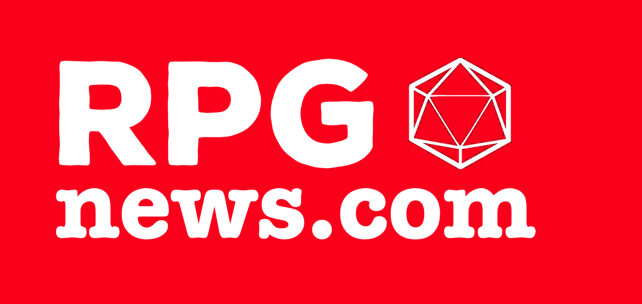Kickstarter recently revealed its plans to move the crowdfunding platform onto the blockchain in 2022, sparking a fierce wave of criticism around its move into the controversial world of crypto.
Among those who most vehemently opposed last week’s announcement were independent tabletop creators who rely on the platform’s ability to finance projects through the support of hundreds of backers. With the success and popularity of tabletop projects growing year after year on Kickstarter – vastly outperforming the likes of video games along the way – the decision to embrace the divisive technology behind crypocurrencies such as Bitcoin and NFTs – non-fungible tokens, notable for their presence in the art community – was received with no shortage of outrage.
Among the chief concerns expressed by critics were the highly questionable ethics – ranging from reports of scams to allegations of money laundering – and steep environmental costs of crypto and its associated technology. While Kickstarter’s announced blockchain provider Celo claims to be the world’s first carbon-negative crypto platform, the title is achieved via carbon offsetting – in other words, making up for the carbon used in the process by planting trees and investing in other such eco-friendly projects – rather than direct reduction of its carbon footprint.
Moving to such an intensive and complex construction for their platform just feels like a slap in the face.
“We have some huge concerns about the environmental impact of Celo that we don’t think are solved by carbon offsetting – we’re aware Proof of Stake uses less energy than Proof of Work, but that’s an incredibly low bar and we haven’t been able to find enough evidence on its actual energy use to make us comfortable using it,” said Sasha Sienna of MacGuffin & Company. The tabletop RPG studio ran its first Kickstarter in April for system-neutral settings collection Odd Jobs, followed by a collaboration with Ella Watts and Max Briar on tarot-powered RPG Upriver, Downriver. The team is actively looking for alternative crowdfunding platforms to launch two Kickstarter projects planned for 2022 and 2023.
“We’re deeply unhappy with their actions in light of their stated commitment to environmental justice,” added Robin Belle of Shrike Tabletop, which launched a Kickstarter campaign for ‘chemipunk’ RPG Era of Silence in mid-November. The campaign was live at the time of Kickstarter’s blockchain announcement. “We had to fill out an entire section on how we were going to make our product and process sustainable, and them moving to such an intensive and complex construction for their platform just feels like a slap in the face.
“Despite it objectively having worked for us as a platform we’d rather just opt to explore opening a shop that we have more control over, but this is a privilege we have. This decision is going to harm a lot of creators who relied on Kickstarter to operate their businesses.”
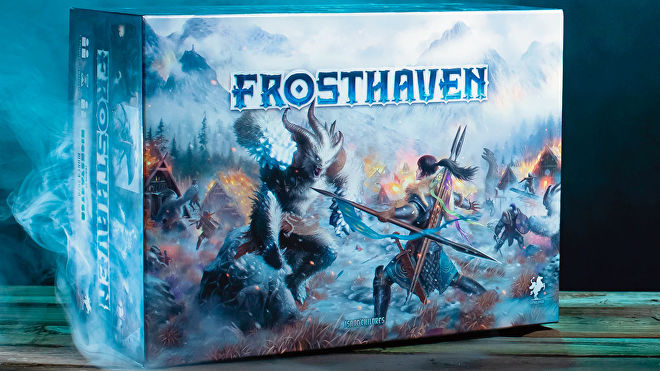
When contacted by Dicebreaker to seek comment in response to creators’ concerns regarding the ethical and environmental implications of using the blockchain, a representative responded with a link to a public FAQ released shortly after the initial blockchain announcement.
“Our Trust & Safety team works hard to ensure our platform is safe and reliable,” the FAQ says in regard to the risk of scams and “bad actors” as the result of the blockchain move. “We remove projects that violate our terms of use. When a project is fraudulent, or infringes on the IP rights or copyrights of an artist, we take it down. We’ll continue to do that when we’re a client of the protocol.”
On the topic of crypto’s environmental impact, the FAQ reads: “We are confident that a crowdfunding protocol built on top of Celo will not significantly negatively impact our carbon emissions given its underlying architecture. It may, in fact, meaningfully reduce our carbon footprint.
“Because we’re dedicated to limiting our environmental impact, we wouldn’t build a protocol on an energy intensive blockchain,” it added, citing its Benefit Corporation charter that declares the company will “seek to limit environmental impact”.
A number of tabletop designers and publishers who spoke with Dicebreaker similarly expressed a desire to move away from Kickstarter as the result of the news. Dedicated crowdfunding rivals such as Gamefound have gathered momentum in recent years among both smaller creators and established publishers, attracting major video game adaptations and indie projects alike.
“This is a time for the creative community to come together and have real conversations about alternatives,” said Tony Vasinda, who designs and reviews indie RPGs as One Plus Exp. “I won’t be funding more projects on KS even if they walk this back. I will still support projects on KS because my focus is supporting creators and a lot of them (for the near future) won’t have any choice but to fund on KS.”
“We are having conversations, but there’s been no decisions made,” said Danni Loe, marketing manager for Machi Koro and Dinosaur Island maker Pandasaurus Games. “We’re talking about our options moving forward.”
Kickstarter has always suffered from being the big fish so they never felt the need to innovate or do the job well.
“In some ways this feels like the nail in the coffin for the platform for smaller companies,” said Steve Dee, president of Australian RPG maker Tin Star Games. The publisher funded its two-player detective drama game Partners on Kickstarter earlier this year, but expects to move over to Gamefound for future projects.
“Kickstarter has always suffered from being the big fish so they never felt the need to innovate or do the job well. Now that they’re doing this, the environmental and ethical damage of working with cryptocurrency is not something we want to be part of personally – but, more importantly, it’s not something our customers like.”
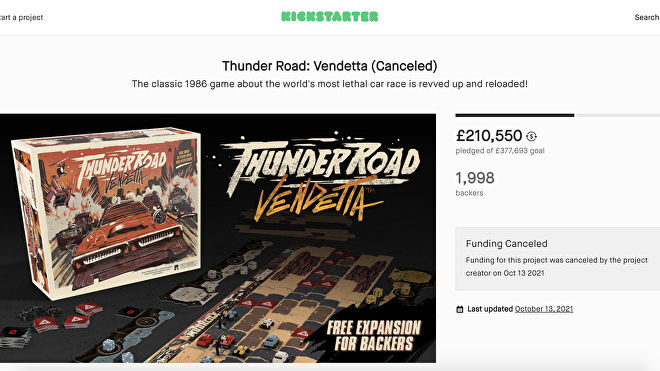
Return to Dark Tower studio Restoration Games will launch a Kickstarter next year for Thunder Road: Vendetta, after its first crowdfunding effort on the site was cut short. President Justin Jacobson said that lack of clarity in Kickstarter’s blockchain announcement had left it “confused” and unclear about the reality for creators.
“I want to know more about what the decision actually is,” Jacobson told Dicebreaker at this year’s PAX Unplugged convention. (Read’s Chase’s full interview with Jacobson here.) “The thing I got from it is it’s not happening tomorrow. For example, we’re going to do Thunder Road on Kickstarter – we’re already signed. We got too much in place to back out.”
Like a number of publishers who spoke with Dicebreaker, Restoration has been exploring alternative platforms, with Jacobson predicting a future Gamefound project to be a near-certainty. Jacobson said Kickstarter’s move to the blockchain would be a “dealbreaker” for the company’s future use of the platform.
“We’re all not happy about it,” Jacobson said. “A lot of these big companies are talking to these consultants or whatever, saying ‘This is a hot new thing and you got to get in on this’, without understanding what their user base feels about it at all. Maybe if they hear enough loud voices in that regard, they might reconsider. But if they move forward we probably would not use the platform.”
A lot of these big companies are talking to these consultants or whatever, saying ‘This is a hot new thing and you got to get in on this’, without understanding what their user base feels about it.
James Hudson, senior director of tabletop games at Skybound Entertainment, agreed that the lack of hard details had left the publisher unsure about its future on Kickstarter. The company plans to launch a crowdfunding campaign for Tidal Blades 2 in February.
“I honestly don’t have enough information to really understand and have a really good position on it yet,” Hudson said. “I think there’s three categories here: there’s anti, there’s pro and there’s curious. So, I would say I’m curious, but it’s not because of my leanings one way or the other. It’s because I just don’t know enough yet.
“I have not seen anything really positive, at least from consumers and industry folks. It seems like nothing but negativity. It doesn’t seem like the right time to jump into that headlong even if somebody could come to me and make a really strong case for it. It doesn’t feel like you want to be the tip of that spear no matter what. So, yeah, my official position will be wait and see.”
Sean F. Smith is the designer of EXUVIAE: Relics of House Dragonfly, an investigative RPG crowdfunded on Kickstarter in 2017. Smith was in the process of planning a Kickstarter campaign for early 2022 when the news hit; he is now searching for a new platform for the project.
“Unless KS takes a solid stance against the ecologically damaging uses of blockchains, I will be using a different platform,” Smith said. “I expect I’ll make less money by doing so, but at what cost is the earth?”
I expect I’ll make less money by using a different platform, but at what cost is the earth?
Asked whether there was any concern tabletop creators may move to alternative platforms such Gamefound in wake of its crypto plans, Kickstarter said that moving onto a public blockchain would allow it to serve as the foundation for other crowdfunding platforms.
“We’re deeply committed to helping game creators bring their projects to life,” a representative told Dicebreaker. “We will continue to improve our product and provide the best service we can for all our creators, including the tabletop community.
“We want to see many options for people to find funding for their creative projects. The more creative projects that can find the funding they need to be realised, the better. That’s our whole mission as a company. In fact, we hope that by creating a decentralised version of Kickstarter’s core functionality, we’ll encourage more tools and platforms to spring up and serve creators in new ways.
“We’re speaking with creators one on one, and planning additional ways for creators and backers to learn more and share their thoughts. We may not have all the answers, but we’re committed to bringing our community along on this journey.”
We know our community has a lot of questions about this new direction, including how it will benefit creators, and how we’ll stay true to our environmental commitments. We are listening. We’ve started an FAQ at https://t.co/YG1XSdpMCZ with what we’ve been asked the most. https://t.co/v8ti7mMpIE
— Kickstarter (@Kickstarter) December 15, 2021
Designer, actual play podcaster and Kickstarter superbacker Grahame Turner expressed concerns that the blockchain announcement heralds a further shift away from supporting smaller creators to catering for large tabletop companies that use crowdfunding as more of a marketing tool than a financial necessity.
“There are two tiers of Kickstarter project: one for small, independent creators trying to get something off the ground that may otherwise never exist. Another for larger companies looking to secure pre-orders for already popular products,” Turner said. “In the blockchain announcement, I see mostly tools for those bigger players.”
Kickstarter denied that its embracing of technology such as crypto marked a further shift towards attracing large companies and investors over smaller creators.
“Supporting the development of an open protocol is not about catering to large companies – this is about finding ways to dramatically increase the number of creative projects that get made, and improving the experience for creators and backers,” it said.
“When Kickstarter was founded, the number and breadth of potential funding sources for creative work increased dramatically – from a few centralised gatekeepers to anyone on the internet. This is what we’ll do at a different scale now. We expect the changes we’re making to result in better tools for creators and backers, more backers getting involved in supporting projects and more projects finding funding. We’re doing this to benefit creators and to help bring more creative projects to life.”
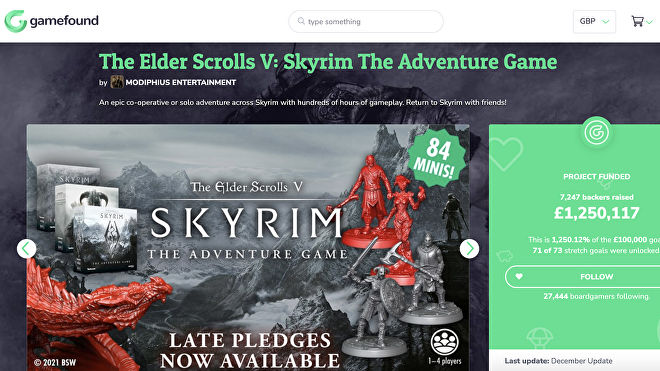
Turner voiced a worry, echoed by a number of designers and backers who spoke to Dicebreaker, that public backlash to Kickstarter’s announcement would disproportionately affect those smaller creators who rely on the platform for the bulk of their business.
“While I don’t want to support Kickstarter’s leadership in this move, I also don’t want the creators to suffer the fallout of a decision they can’t control,” Turner said. “When something sends backers away from Kickstarter in droves, it’s not Kickstarter itself that suffers the consequences, it’s the small-tier creators who can’t reach their funding goals. This announcement reads like they’re saying, ‘We’re OK with that.’“
Sandy Pug Games’ Nem revealed that the RPG studio’s combined lifetimes sales on indie marketplace Itch.io, its own webstore and DriveThruRPG accounted for less than 10% of a single Kickstarter campaign, leaving the team and fellow indie creators with “no other options”.
“At the moment the unfortunate reality is that nowhere else will allow us to do the work that we do,” Nem said. “If people want us off of Kickstarter, we’re more than happy to, but we need people to either support us better on other platforms by an order of magnitude, an alternative platform that can promise us the same financial potential as Kickstarter, or about 3 or 4 years time to build the business large enough to survive without crowdfunding.”
Kickstarter threw the people running campaigns under the bus.
Cat McDonald launched a Kickstarter campaign for actual play series Roar to Heaven two days before the blockchain announcement. Kickstarter’s dominance meant they were left without viable alternatives to fund the project despite strongly opposing the blockchain move: “I am depending on them to get the funds I need for this project.”
McDonald said that the negative reaction to Kickstarter’s announcement – released without pre-warning creators – had “throw[n] the people running campaigns under the bus”.
They initially considered cancelling their own campaign in the wake of the news, only to see supporters rally around smaller creators “caught in the crosshairs of corporate venture capital crypto nonsense”, spurring further support of the Roar to Heaven campaign.
“I’ve been extremely lucky,” they said. “I genuinely cried, like completely sobbed, when I saw that those people were willing to lend a hand.”
McDonald launched a separate Itchfund – Itch.io’s own crowdfunding tool – for backers who wished to avoid Kickstarter entirely. The Roar to Heaven Itchfund campaign has almost equalled the Kickstarter campaign in funding, they said, encouraging them to put greater focus on alternative platforms going forward.
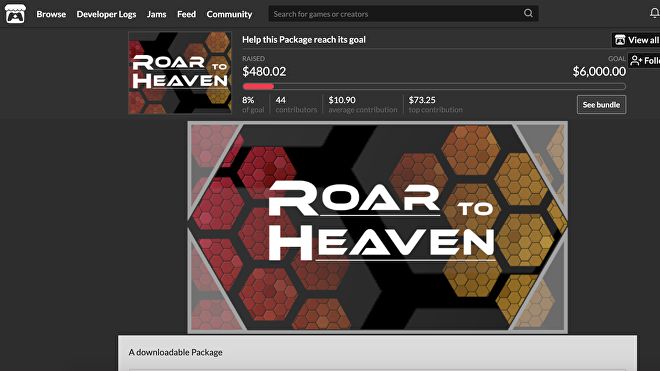
Commenting on the potential impact on tabletop creators as the result of backlash to its blockchain plans, a Kickstarter representative told Dicebreaker that “in the days after our announcement, we’ve seen pledges to projects continue at the same level as the weeks prior”.
“We’ve heard from the games community that we could have told the story of why we are supporting a decentralised protocol better,” they acknowledged. “We take our responsibility to creators very seriously. We’re working to paint a clearer picture of the opportunities and possibilities that the protocol will unlock for the games community.
“Tabletop creators and backers are and will always be an incredibly important part of the Kickstarter community. And we are committed to being thoughtful and transparent, and hearing from creators and backers as plans take shape from here.”
Even with alternatives available, Kickstarter’s dominance in the tabletop industry leaves many creators and their backers in a difficult position, forced to choose between depending on a platform they oppose or dealing with the likely loss of income and recognition that comes with leaving it all behind.
“For us, it’s really going to be about: what’s the best way? What’s the best venue and mechanism to get this new thing out to the community?” said Bart Vickers, marketing director for Fandom, the owner of genre-agnostic RPG system Cortex Prime. Vickers said that Fandom had “no major concerns” about the blockchain news, but was taking an “intentional” approach.
“Kickstarter is a great way to raise initial funds to get stuff going. I mean, geez, the Avatar RPG just did great. I’m super stoked for those folks. But it’s also a way to really kind of announce your new thing to the community, and in many ways that’s almost the bigger value of Kickstarter. We want to make sure that it works for us as a publisher, and it works for the Kickstarter community.”
“It’s galling as a designer to know that many of my peers will feel forced to accept KS funding even if they are personally upset about the move to a crypto-based platform because it’s the only way a lot of smaller publishers can afford to get games out and thus the only way their designs will see the light of day,” summarised Jake Staines, creator of Marquis, which crowdfunded a second print run of the solo RPG on Kickstarter in February. “There are other platforms but none of them have the widespread acceptance and trust that KS does in the English-speaking world.
“It’s also galling as a consumer to potentially be forced to choose between supporting something as damaging to society as the crypto cult or returning to a world where designers have to pitch their game to one of a handful of giant publishers to get it out to a wide audience.
“I’m still going to choose the option that allows me to not fund blockchain-fuelled companies every time, though – and if that means never backing anything on KS again, so be it.”
Read more at this site
